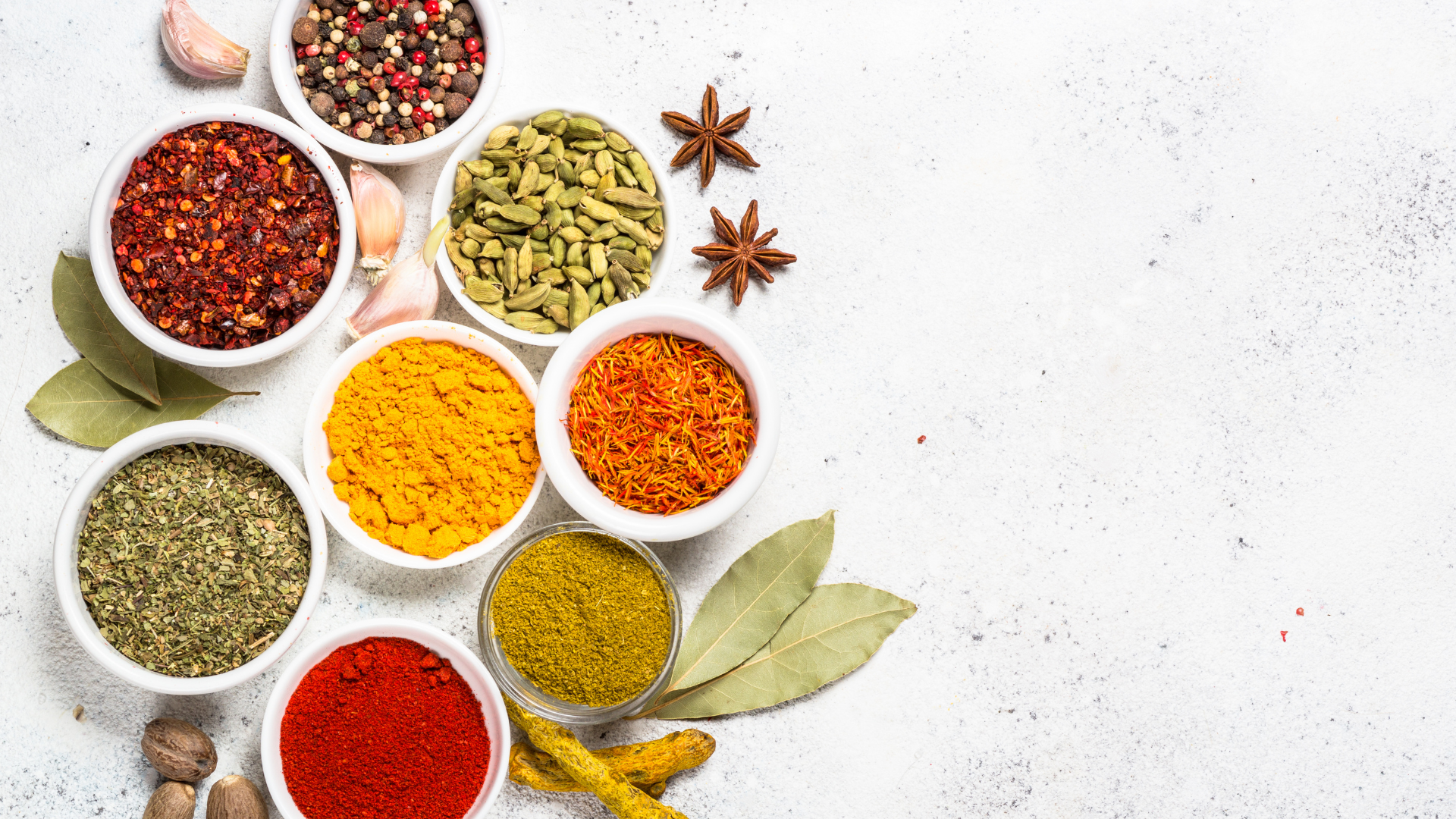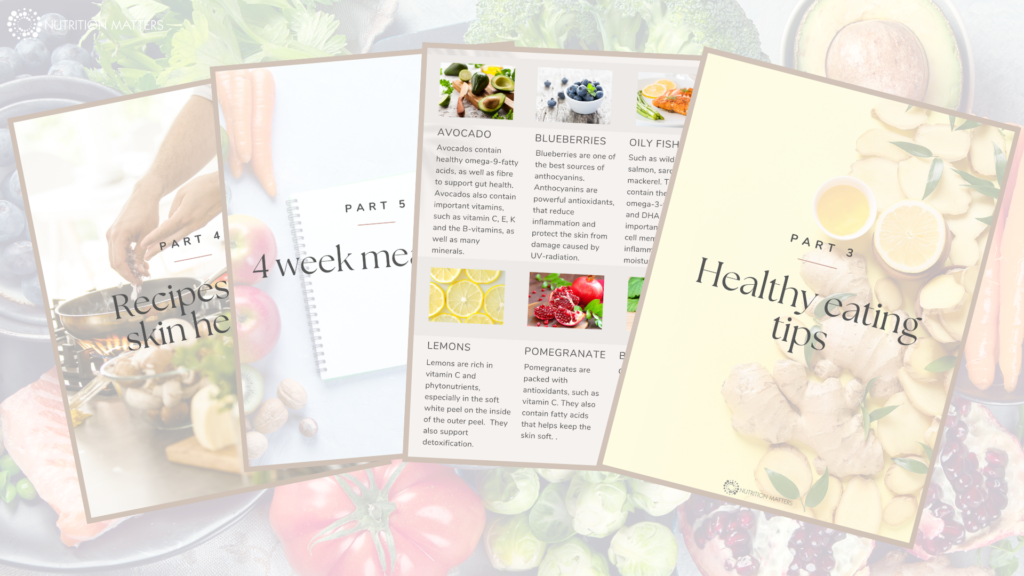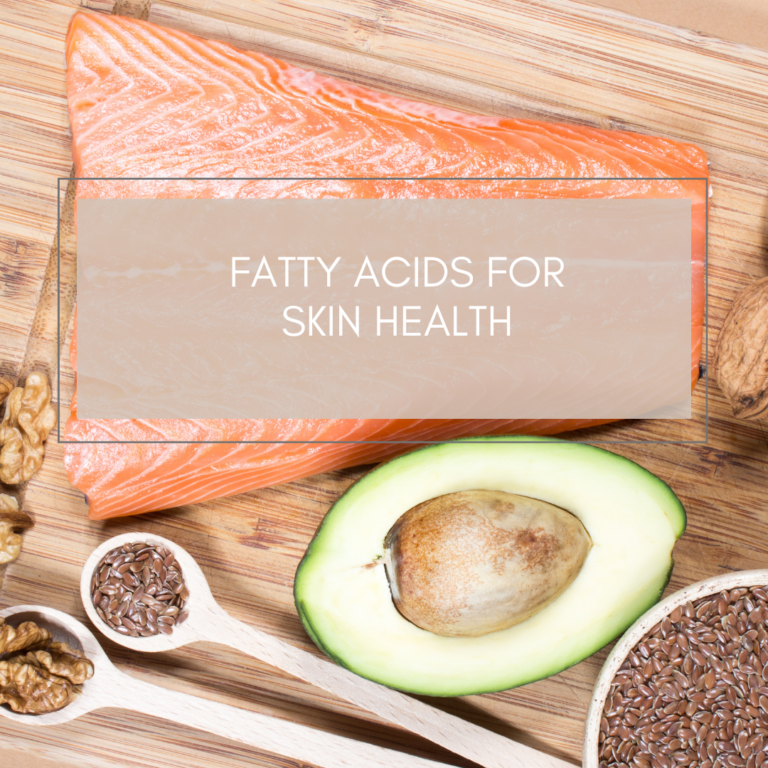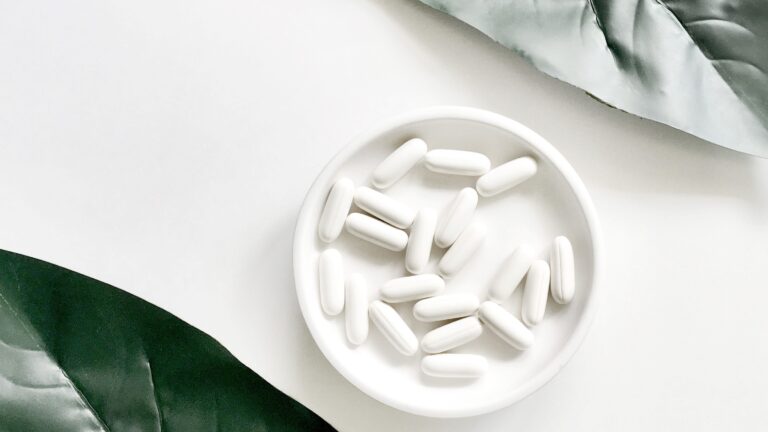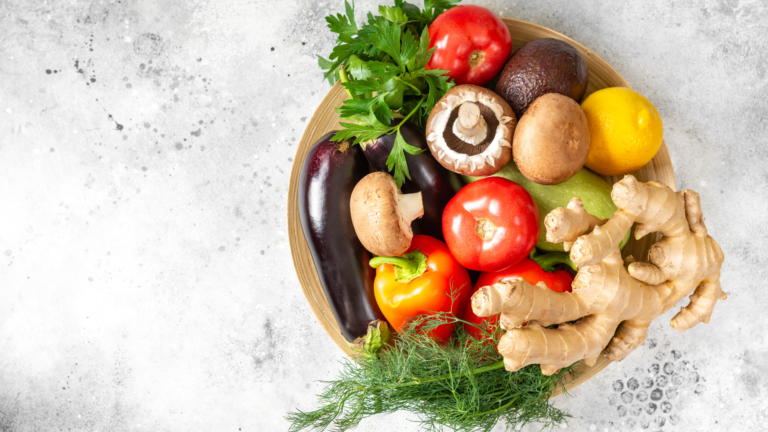The fact that inflammation affects our health and the development of many of our common chronic lifestyle-related diseases has become increasingly recognized in recent years.
Inflammation inside the body can be an important underlying factor in several skin problems, such as acne, eczema, psoriasis and rosacea.
Reducing inflammation in the body is not only important for reducing the risk of some of our most common chronic lifestyle-related diseases, but also for the health of the skin.
What is inflammation?
The word inflammation means fire (“in flames”). It’s the body’s natural defense against invaders and therefore, inflammation is a vital function. It’s one of the immune system’s natural responses to infection and injury and is there to protect us.
When an injury occurs, immune cells gather at the site of the injury. White blood cells secrete inflammatory chemicals.
This causes the tissue to become warm, swell, become red and you feel pain. An acute injury, with local inflammation in that area, is not harmful, it’s on the contrary, a necessary part of the healing process.
Chronic inflammation that continues for a long time is more serious and is associated with many diseases and health problems, such as heart disease, diabetes, cancer and even mental illness, such as depression. Inflammation in the gut, that continues over a prolonged period of time, can lead to low-grade chronic inflammation.
Some experts call inflammation “ the mother of all disease”.
By reducing inflammation, you not only promote skin health, but also your overall health and well-being.
“Inflammaging”
Research in recent years shows that inflammation is a condition that accelerates aging to such an extent that some scientists call it inflammaging. This means that by influencing inflammatory processes in the body with our diet and lifestyle, we can influence the aging process to some extent.

Anti-inflammatory diet and nutrition
What we eat and how we live can, as mentioned, affect inflammatory processes.
By avoiding factors in your diet and lifestyle that trigger inflammatory processes in the body and making sure to increase the nutritional and lifestyle factors that reduce inflammation, you can to some extent influence inflammatory processes in the body.
Foods that have a high nutritional content, contribute to a healthy blood sugar balance (low GI), contain ingredients that are as natural as possible (i.e. free from additives, chemicals, pesticides), can help counteract low-grade inflammation and thus have anti-inflammatory effects in the body.
In other words, different foods and active substances in foods can affect inflammatory processes by activating the secretion of inflammatory substances, hormones and also by activating different genes.
A healthy gut, including a balanced and diverse gut flora, is key to reducing the development of inflammation in the body. That’s because much of the chronic inflammation has a foundation in the gut.
Examples of anti-inflammatory foods and lifestyle factors
Colorful vegetables, berries and fruits
Each color represents a specific type of phytonutrient with protective antioxidant and anti-inflammatory properties. Examples of foods from the plant kingdom that contain anti-inflammatory phytonutrients: broccoli, cabbage (white cabbage, red cabbage, cauliflower, kale), nettles, radish, beetroot, celery, spinach, zucchini, bell pepper (yellow, red, orange and green), tomato, various kinds salads (arugula, iceberg lettuce, mache, etc.), sprouts, asparagus, blueberries, lingonberries, raspberries, rhubarb, black currants, lemon, grapefruit, pineapple.

Fermented vegetables, probiotics and fibre
By supporting the intestinal flora and intestinal health with fermented foods, probiotics and fibre, inflammatory processes can, to some extent, be influenced. Fermentation of various foods leads to the growth of benign bacteria and this contributes to a good balance in the intestinal flora and builds resistance to infections as well as supporting nutrient absorption and good digestion. Some examples of fermented vegetables are sauerkraut, kimchi or other vegetables, e.g. carrots and onions. Other examples of fermented foods are kombucha, yogurt, skimmed milk, natto and miso.
Fiber (prebiotics)
Fiber acts as food for the bacteria and thus benefits the intestinal flora, which in turn reduces inflammatory substances. Vegetables and fruit contain a lot of fiber. Learn more about how you can support gut health here.
Spices and herbs
Spices and herbs such as turmeric, ginger, cinnamon, cardamom, coriander, cumin, saffron, parsley, garlic and chilies can help fight inflammation. Turmeric has particularly powerful anti-inflammatory properties. It contains curcumin, which has been shown to reduce the incidence of inflammatory diseases in animal studies.
Vitamins and minerals
Certain vitamins, minerals and trace elements have anti-inflammatory properties and can help reduce inflammation in the body. Some examples are vitamin D, vitamin E, magnesium, zinc and selenium. This is because they are important for regulating the immune system and some of them have powerful antioxidant properties.
Omega-3 fatty acids
A high intake of Omega-3 fatty acids (found, among other things, in fatty fish, fish oil, meat from grass-fed animals, flaxseeds, cold-pressed flaxseed oil, walnuts) are associated with reduced levels of pro-inflammatory substances. Fish oil is the richest source of the active omega-3 fatty acids EPA and DHA, which have strong anti-inflammatory properties. Omega-6 fatty acids, on the other hand, have pro-inflammatory effects (see below).

Coffee and tea
Coffee and tea contain phytonutrients that have anti-inflammatory properties. However, too much coffee can have the opposite effect because it increases stress in the body.
Physical activity
Being physically active has been shown to reduce inflammatory substances in the body.
Factors that trigger inflammation
There are certain foods, active substances in food and lifestyle factors that fuel inflammation in the body.
High blood sugar
Foods with a high GI, which raise blood sugar quickly and also a high intake of sugar from sweets, soft drinks, pastries, chocolate and fast food and processed food have a pro-inflammatory effect in the body.
Vegetable oils containing omega 6
Omega-6 fatty acids have proinflammatory effects. This type of inflammation-causing oil is found in vegetable oils such as corn oil, sunflower oil, etc. and thus often in snacks and fast food such as chips, French fries and other fried food. It is above all the ratio between omega-6 and omega-3 fatty acids that can be problematic (see the post on fat). Also avoid trans fats and hydrogenated fats that can be found in sweets, pastries and other products.
Ultra-processed foods
Ultra-processed foods contain few nutrients but a lot of calories and other ingredients that contribute to increased inflammation. They include fried food with heated industrial oils (omega-6 fatty acids), sweets and fast foods with sugar, refined salt and many unnatural additives.

Foods cooked in high temperatures
Food that’s been cooked at high temperatures, such as BBQ’s and foods fried at very high temperatures, contain harmful substances, such as advanced glycation end products (AGEs) and polycyclic aromatic hydrocarbons (PAH’s) that cause inflammation and other health problems.
Stress and lack of sleep
Both physical and mental stress are linked to an increased secretion of inflammatory substances. Stress increases the risk of sleep problems, and people with sleep problems are also considered to have an increased risk of chronic inflammation.
Smoking
Smoking reduces anti-inflammatory substances and increases inflammatory substances.
Low levels of sex hormones
Estrogen and testosterone inhibit the secretion of proinflammatory substances.
Dysbiosis and other gastrointestinal health problems
Dysbiosis is an imbalance in the intestinal flora. Too much harmful bacteria in the gut can contribute to inflammation. Good gastrointestinal health is essential for regulating inflammation.
Nutrition Matters Skin –
Your complete guide to beautiful skin from within!

